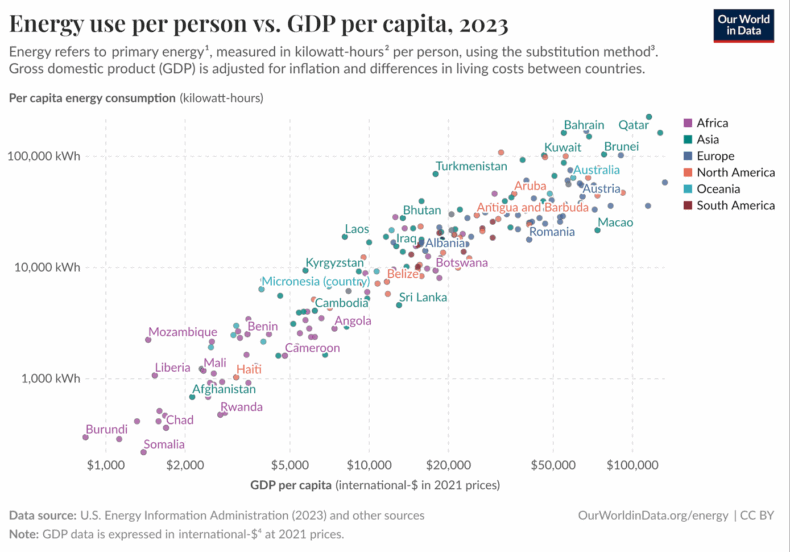This publication of this week’s Industrial Strategy, and the first of five associated ‘Sector Plans’, marks the latest step in delivering on the Government’s ambitions to boost economic growth. There is much in the papers published that seems sound, including the importance of unlocking investment in skills, R&D and infrastructure – all of which are key to creating good jobs.
And perhaps most importantly, the Advanced Manufacturing Sector Plan contains a recognition that high energy prices are significantly harming the competitiveness of key UK industries. This was a key conclusion that we at the Jobs Foundation made in our new paper, ‘Jobs and Energy: The effect of high costs on the UK jobs market’, which mapped out where in the UK high energy costs are most putting jobs at risk, and found that across much of our industrial heartlands, communities could lose their economic livelihoods.
But despite this acknowledgement of the damage that energy costs are exacting, there is no broader acknowledgement of the scale of the energy cost crisis facing businesses across Britian, and the policy prescribed as the solution to this goes nowhere near far enough. This omission puts at jeopardy the wider Industrial Strategy, and the economic growth of the UK as a whole.
Energy must be thought of as one of the core factors of production, alongside land, labour and capital. As shown in the graph below, as energy consumption goes up, so too does the economic success of individuals.

Source: Our World in Data
.
But for too long, energy has been treated as a climate issue, and not an economic one. The result is that UK industrial electricity prices are among the highest in the developed world. In 2022, UK industrial electricity costs were 54% above the EU average and 91% higher than the OECD average. The UK now ranks as the fifth most expensive country in the OECD for industrial power, with British firms facing spiralling bills that erode competitiveness and choke off investment.
The consequences of the failure to properly address high energy costs are already stark in Britain’s industrial heartlands – in South Yorkshire, the Midlands and the North East – all of which are targeted in the Industrial Strategy for economic renewal. Energy-intensive businesses, which tend to offer higher wages and longer-term employment, are being squeezed out. And with them go the jobs, apprenticeships, and local economic multipliers they support.
The Government has tried to address this, at least in part. The British Industrial Competitiveness Scheme promises to reduce electricity prices by up to £40/MWh for a limited set of energy-intensive users. This is a step in the right direction and will rightly be welcomed by the business in the so called ‘electricity intensive frontier industries’ identified in the Sector Plan. However, this will only apply to small slice of UK industry, at roughly just 10% of industrial electricity use, with the remaining 90% of industrial users being left exposed to punishing costs.
In addition, the mechanism by which lower bills for some will be achieved – exempting eligible businesses from paying the costs of certain renewable obligations, feed-in tariffs and the capacity market – will surely only serve to further burden other energy bill payers, without truly addressing the structural flaws with the way in which we price energy.
It’s also not just heavy industry that’s hurting. One of the omissions from the Industrial Strategy is the lack of focus on energy costs in sectors that don’t fall within the futuristic sounding ‘IS-8’ prioritised in the document. Sectors like retail and hospitality, that may not be as glamorous in policy debates, but that employ millions and serve as the first rung on the jobs ladder for many.
In these sectors, energy bills have become an existential issue. Small shops, pubs, and restaurants are seeing utility costs outstrip rent in some cases, yet they are receiving no targeted support. For a government committed to levelling up and building an economy that works for everyone, this is a glaring blind spot.
Even in the forward-looking Digital and Technologies Sector Plan, which envisions half a million new jobs and aims to deliver the UK’s first trillion-dollar tech firm, there is no serious engagement with energy as an enabler or constraint. This is a major oversight. AI model training, semiconductor fabrication, and data centres are enormously energy-intensive, yet the strategy barely references how costs will be brought down to competitive levels so that the UK can be a global leader in these emerging sectors and reap the rewards of the jobs that they could bring.
Perhaps the Government’s flagship sector plan is that for clean energy. But if the UK wants to be a clean energy superpower, it must start by being a competitive one. That requires recognising energy pricing as a first-order issue for jobs, growth and economic renewal – not just in the traditional sectors of industry, but across the entire economy.
A truly modern industrial strategy doesn’t pick winners. Instead, it creates the conditions for businesses to thrive in. That means affordable energy, reliable infrastructure, and a government that sees business not as something to be taxed or regulated away, but as a strategic partner in national renewal.
The Industrial Strategy goes some way to recognising these problems. But much more needs to be done to truly put in place the building blocks for economic growth.
Click here to subscribe to our daily briefing – the best pieces from CapX and across the web.
CapX depends on the generosity of its readers. If you value what we do, please consider making a donation.


